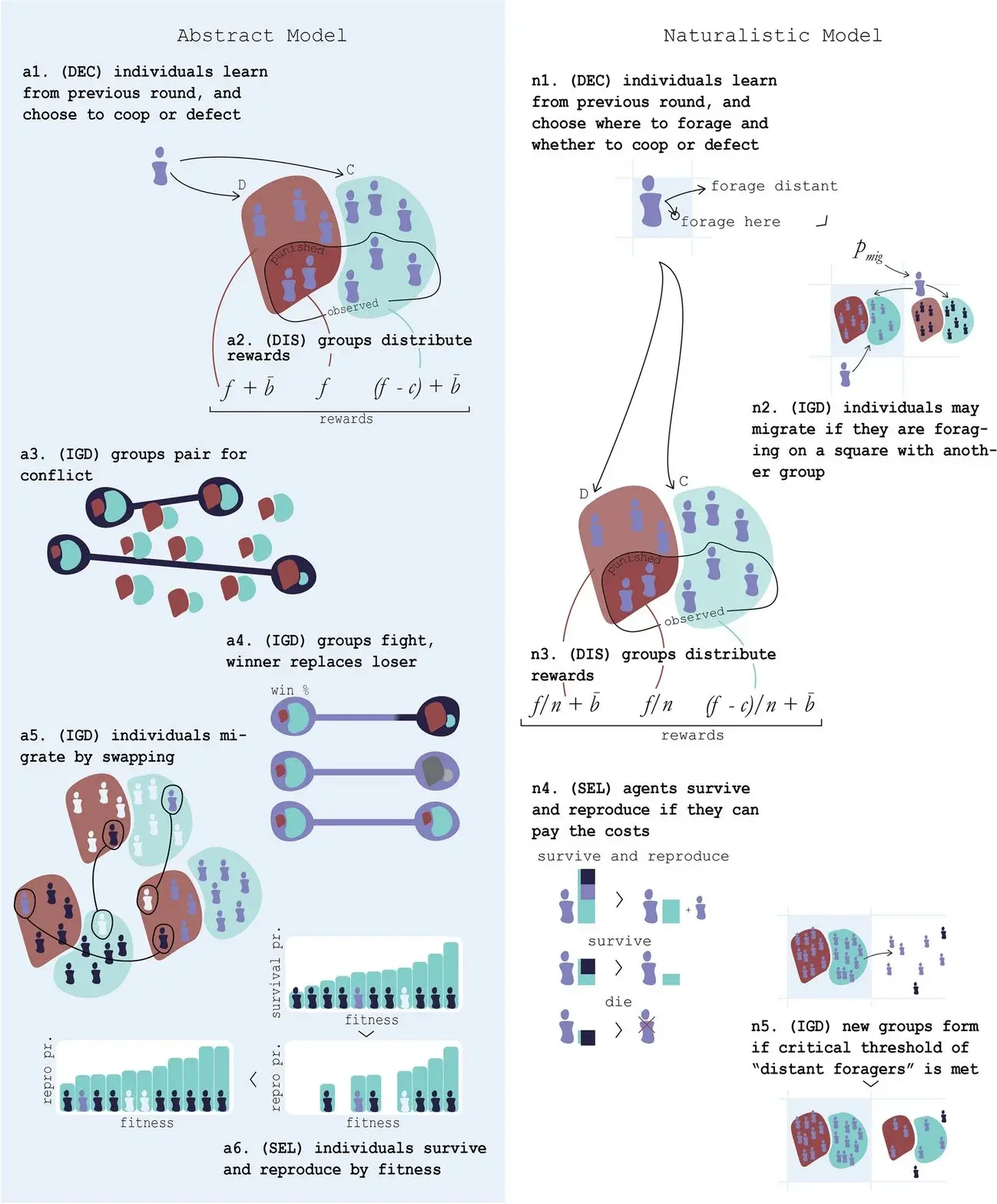That strong urge many people feel to abide by social norms even when it is individually harmful may have its roots in Darwinian fitness, according to a new study published in Behavioral Ecology and Sociobiology.
“Even when only a minority of the population internalizes norms, it can have a big impact in terms of getting people to cooperate more and for longer,” says Victor Odouard, a former predoctoral researcher at SFI and lead author of the study. “Our research offers an evolutionary explanation for why people will work together for the benefit of the group, even when it would be better for them, individually, not to do so.”
This effect results in a small number of highly cooperative groups outcompeting other less cooperative groups for resources, enabling them to grow and spread.
Would someone please explain this to the U.S. Congress??!??
I wonder if these scientists played classic WoW. Yea, humans have an incredible ability to follow individually harmful social norms and prioritize the group for the sake of a greater goal. I wonder if narcissists can even last in such a righteous environment.
I wonder if prioritizing depending cooperation and bonds as a goal will force others to play nicely, too.



